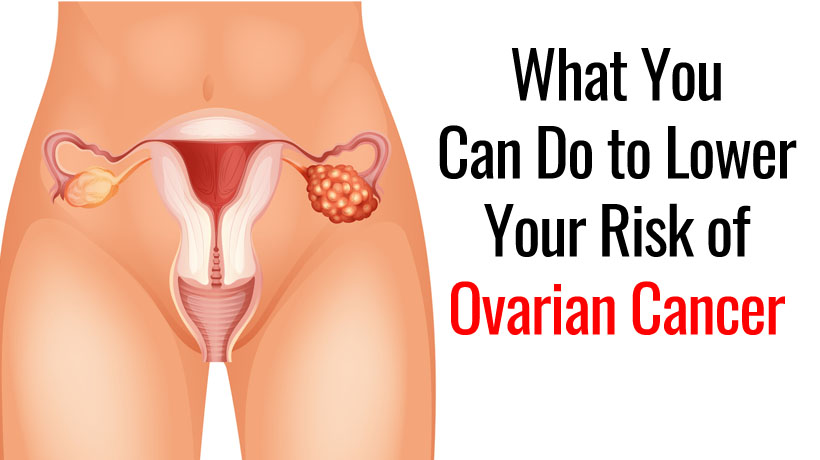Ovarian cancer attacks one or both of your ovaries: the reproductive organs that store eggs and produce estrogen and other hormones. It’s developed when the DNA in a cell stops working properly and begins to create abnormal cells that grow out of control. These cancer cells can form tumors that spread throughout the body.
About 1 in 75 women will be diagnosed with ovarian cancer at some point in their lifetime. The cancer usually affects women later in life, after menopause. Ovarian cancer can be very serious, especially if it’s not found in its early stages; in fact, it is the fifth deadliest cancer amongst women.
But there’s good news here, too: Your risk of ovarian cancer can be lowered by birth control pills that contain the hormones estrogen and progestin.
Oral contraceptives appear to reduce the incidence of ovarian cancer and other less common reproductive cancers, like endometrial cancer. For women with an average risk, use of birth control is associated with a 40 to 50 percent lifetime risk reduction. This is important because these reproduction cancers are often detected at an advanced stage when it’s hard to treat and chances of mortality are high. There is preliminary evidence that birth control pills may also reduce the risk of colorectal cancer.
“There is good data to show that five or more years of oral contraceptive use substantially reduces ovarian cancer and endometrial cancer risk, and may reduce colorectal cancer,” said David J. Hunter, a professor of epidemiology and medicine at University of Oxford in Britain. “And the protection persists for 10 or 20 years after cessation.”
As Hunter begins to note, oral contraception is even better at preventing ovarian cancer with longer use, and the benefits can last for 15 years after quitting the pill. In other words, the duration of oral contraceptive pill use was important. As a matter of fact, up to a point, the risk of ovarian cancer decreased by 36 percent with each additional 10 years of birth control use.
Women with BRCA1 or BRCA2 gene mutations, who are at a higher likelihood of developing the disease, should especially consider taking oral contraceptive pills to reduce their ovarian cancer risk.
Other, more extreme, potential prevention strategies for ovarian cancer include tubal sterilization, risk‐reducing salpingo‐oophorectomy, and salpingectomy after childbearing is over.
Death rates from ovarian cancer may be reduced dramatically if women at risk begin to incorporate prevention strategies. Because early detection of cancer through screening and symptom detection has yet to reduce mortality, the only strategy that’s currently available to decrease the number of women who succumb to ovarian cancer is to fend it off before it turns cancerous.
Sources:
https://www.ncbi.nlm.nih.gov/pubmed/?term=iversen%2C+sivasubramaniam%2C+oral+contraceptive
https://onlinelibrary.wiley.com/doi/full/10.1002/cncr.29321
https://www.cancer.org/cancer/ovarian-cancer/causes-risks-prevention/prevention.html
https://www.medicalnewstoday.com/articles/316565.php
https://www.cdc.gov/cancer/ovarian/basic_info/prevention.htm



